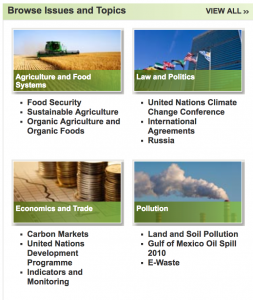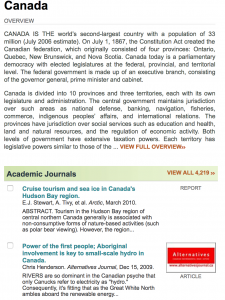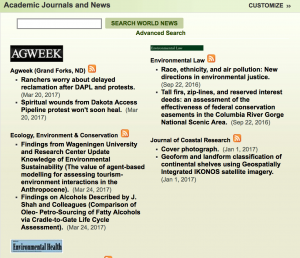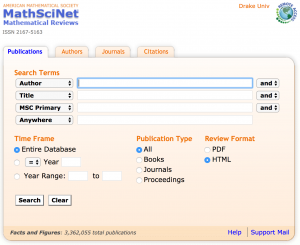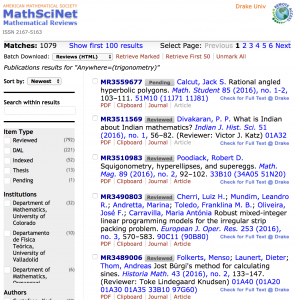Some science-based databases are extremely large and cover such a wide variety of topics that it can be difficult to navigate them and find what you need. GREENR, the Global Reference on the Environment, Energy, and Natural Resources, is a more focused database that allows you to easily locate helpful material.
GREENR’s browsing features are especially helpful. The database opens on a page with a concise set of bulleted lists, featuring the major areas it covers. These areas include: energy systems, health care, food, climate change, population, economic development, resource management, ecology, science and technology, humans in the natural world, and social factors. Below is an example of some of the bulleted lists featuring areas of research, news, and statistics.
Another nice feature is the browsable world map. The map allows you to focus on a particular country or region of the world and learn about its energy use, emissions, ecological footprint, and other environment-related data and studies. Plus by focusing on each country you can also see a list of academic journal articles and statistics that relate to research done in or about that particular nation. Below you will see an example focused on the nation of Canada. Statistics and other materials are located within the full overview of the nation.
In terms of types of resources, GREENR offers a wide variety of formats. You will be able to find current news articles, case studies, videos, scholarly journal articles, commentaries, primary source documents, statistics, and visualizations and infographics based on the statistics located within. Click here to see an example of an academic journal article within GREENR. Below you will see a list of the most recent news and academic articles located within GREENR.
GREENR is a great database option for people in the STEM fields but also helpful for those in business, sociology, law, or politics as well. Give it a try and contact us at Cowles Library if you have any questions about it.
